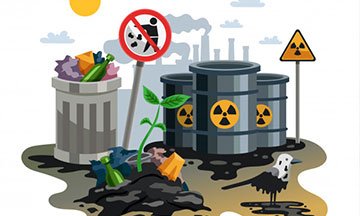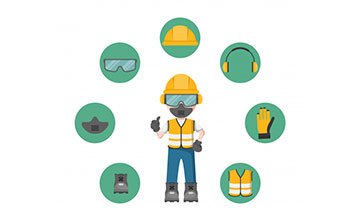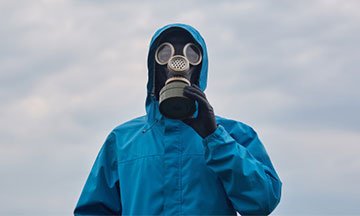Hazardous Waste Management and Disposal Training Course
| Date | Format | Duration | Fees | |
|---|---|---|---|---|
| 20 May - 24 May, 2024 | Live Online | 5 Days | $2250 | Register |
| 24 Jun - 28 Jun, 2024 | Live Online | 5 Days | $2250 | Register |
| 15 Jul - 19 Jul, 2024 | Live Online | 5 Days | $2250 | Register |
| 23 Sep - 25 Sep, 2024 | Live Online | 3 Days | $1750 | Register |
| 11 Nov - 19 Nov, 2024 | Live Online | 7 Days | $3147 | Register |
| 22 Dec - 26 Dec, 2024 | Live Online | 5 Days | $2250 | Register |
| Date | Venue | Duration | Fees | |
|---|---|---|---|---|
| 06 May - 10 May, 2024 | Johannesburg | 5 Days | $4950 | Register |
| 13 May - 17 May, 2024 | Dubai | 5 Days | $4750 | Register |
| 10 Jun - 14 Jun, 2024 | Nairobi | 5 Days | $4950 | Register |
| 10 Jun - 14 Jun, 2024 | Dubai | 5 Days | $4750 | Register |
| 01 Jul - 05 Jul, 2024 | Kuala Lumpur | 5 Days | $5350 | Register |
| 22 Jul - 26 Jul, 2024 | Dubai | 5 Days | $4750 | Register |
| 19 Aug - 23 Aug, 2024 | Dubai | 5 Days | $4750 | Register |
| 11 Sep - 13 Sep, 2024 | Dubai | 3 Days | $3950 | Register |
| 14 Oct - 18 Oct, 2024 | Dubai | 5 Days | $4750 | Register |
| 04 Nov - 08 Nov, 2024 | Dubai | 5 Days | $4750 | Register |
| 25 Nov - 06 Dec, 2024 | Mumbai | 10 Days | $9375 | Register |
| 08 Dec - 12 Dec, 2024 | Doha | 5 Days | $4950 | Register |
| 09 Dec - 13 Dec, 2024 | Dubai | 5 Days | $4750 | Register |
Course Overview
The hazardous waste consists of substances that could hurt the environment or impair human health. This type of waste comes from pharmaceuticals, chemicals, and wastewater treatment, and also everyday items like some batteries, light bulbs, paints, and solvents.
According to the Environmental Protection Agency (EPA), in 2017, more than 25,000 active waste generators produced about 35.1 million tons of hazardous waste – that is over 35 million tons of potentially fatal waste, produced in just one year.
What is Hazardous Waste Management? Hazardous waste management is the process of handling waste in a way that keeps employees, consumers, residents, and local ecosystems away from the harmful repercussions of such elements.
The chain of responsibility for hazardous waste management generally passes through multiple locations: generators, transporters, treatment, storage, and disposal.
What topics will this “Hazardous Waste Management and Disposal Training Course” cover? The training session discusses 4 key elements: hazardous waste disposal, emergency response planning, prevention of pollution, and recycling of metals and other redundant equipment.
This Zoe training course will empower you with the knowledge to raise awareness on the proper disposal of materials in a safe, efficient, and environmentally friendly manner.
Course Objectives
Upon completing this Hazardous Waste Management and Disposal Training Course successfully, participants will be able to:
- Identify the various types of contamination and distinguish the ones that apply to your company
- Support and facilitate conversations on specific contamination issues
- Learn about the pertinent environmental legislation for contamination and pollution
- Understand how to prioritise contamination problems and waste management issues in a logical sequence
- Discuss the impact of contamination on human health and the environment
- Evaluate the current practices used to clean up contaminated soil, water, air pollution, radioactive materials, and construction materials
Training Methodology
This collaborative Hazardous Waste Management and Disposal Training Course will comprise the following training methods:
- Lectures
- Seminars & Presentations
- Group Discussions
- Assignments
- Case Studies & Functional Exercises
Comparable to all our training programs, this course also follows the ‘Do-Review-Learn-Apply’ model.
Organisational Benefits
Companies who nominate their employees to participate in this Hazardous Waste Management and Disposal Training Course can benefit in the following ways:
- Study the use of effective non-hazardous products in your company
- Build a safety culture rather than focusing on simple regulatory compliance
- Develop less cause for concern of real or potential contamination problems at your facilities over time, with solid waste management processes in place
- Reduce corporate healthcare costs and employee downtime by preventing accidents and managing contamination issues to the optimum
- Avoid accidents by employing the correct handling and disposal methods for the equipment used for various types of hazardous wastes
- Recognise any training needs for all staff members involved with hazardous waste management
- Create emergency response plans to hazardous substance emission
- Set industry standards and benchmarks by practising proper waste management procedures
Personal Benefits
Individuals who participate in this Hazardous Waste Management and Disposal Training Course can gain from it in the following ways:
- Obtain details on the various types of contaminants and the discoveries in eliminating these harmful substances
- Become aware of the potential threats of improper waste management to humans and the environment
- Consider the environmentally friendly methods of disposal for both hazardous and non-hazardous wastes
- Learn the economics of minimising or preventing pollution for different industries
- Obtain the satisfaction of knowing that your organisation takes hazardous waste disposal seriously to minimise workplace contamination
- Contribute to the implementation of processes and policies to ensure that proper guidelines are followed
- Ensure a genuinely safe workplace for yourself and your co-workers
Who Should Attend?
This Hazardous Waste Management and Disposal Training Course would be suitable for:
- Hazardous waste management teams
- Health, safety, and environmental professionals
- Laboratory technicians
- Technical assistants
- Emergency personnel
- Staff responsible for contamination issues
- Individuals who wish to reduce risk and liability arising from polluting substances
Course Outline
MODULE 1: INTRODUCTION TO HAZARDOUS WASTES
- Definition of hazardous wastes & non-hazardous wastes
- The relationship between contamination and hazardous wastes
- The toxic 12 chemicals and those that soon may be added to the toxic 12
- Environmental law and its significance
- The United Nations Environment Program (UNEP)
MODULE 2: HISTORY OF CONTAMINATION
- What is contamination?
- What is the impact of contamination?
- Various types of contamination
- Environmental issues related to contamination
- International regulations and legislations related to contamination
MODULE 3: MANAGEMENT OF CONTAMINATION AND HAZARDOUS WASTES
- Carrying out a contamination audit
- Contamination and its impact on occupational health & safety
- The role of documentation in hazardous waste management
- Some typical hazardous waste regulations and the need for harmonisation
- Workplace Hazardous Materials Information System (WHMIS)
- Material Safety Data Sheet (MSDS)
- Globally Harmonised System (GHS)
- Managing a waste disposal site
MODULE 4: CONTAMINATION AND POLLUTION PREVENTION
- Exploration & Production
- Refining & Transportation
- Oil Spills
- Case Study – April 2010 Gulf of Mexico
- Modern tanker designs
- Other oil-related sources of pollution
- Zero Waste (ZW)
- Zero Liquid Discharge (ZLD)
- The Bird Problem
MODULE 5: POLLUTION PREVENTION PLANNING
- Life Cycle Management of all equipment
- Reduce, Reuse, Recycle, Recover and Rethink – the 5 R’s
- Proper storage and disposal of hazardous materials
- The importance of ongoing training within organisations
MODULE 6: CONTINGENCY PLANNING FOR MAJOR INCIDENTS
- Emergency plan sections and review cycles
- The influence of ISO 14001, 18001 and 9001 on hazardous waste management
- Types of environmental audits
- Preventable major accidents
MODULE 7: EMERGENCY RESPONSE TO HAZARDOUS SUBSTANCE RELEASE
- Fundamentals of an emergency response plan
- Components in an emergency response plan
- Skilled support personnel
- Specialist employees
- Procedures for handling emergency response
- Training levels/programs
- First responder awareness level
- First responder operations level
- Hazardous materials technician
- Hazardous materials specialist
- On scene incident commander
- Refresher training
- Medical surveillance and consultation
- Personal Protective Equipment (PPE)
MODULE 8: MANAGEMENT’S ROLE IN PREVENTION OF CONTAMINATION AND HAZARDOUS WASTES
- HAZID (HAZard IDentification)
- HAZOP (HAZard & OPerability)
- Environmental ethics
- Examples of environmental ethics
- Climate change update and its significance
- Making your company environmentally friendly at a reasonable cost











